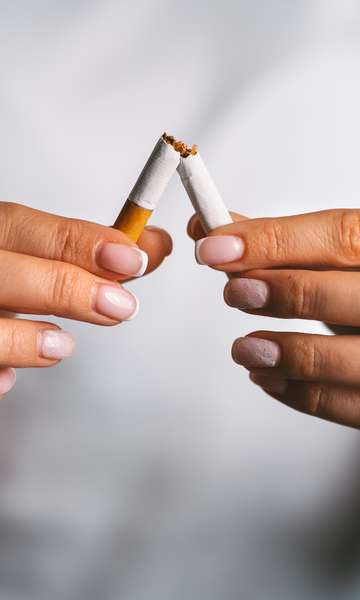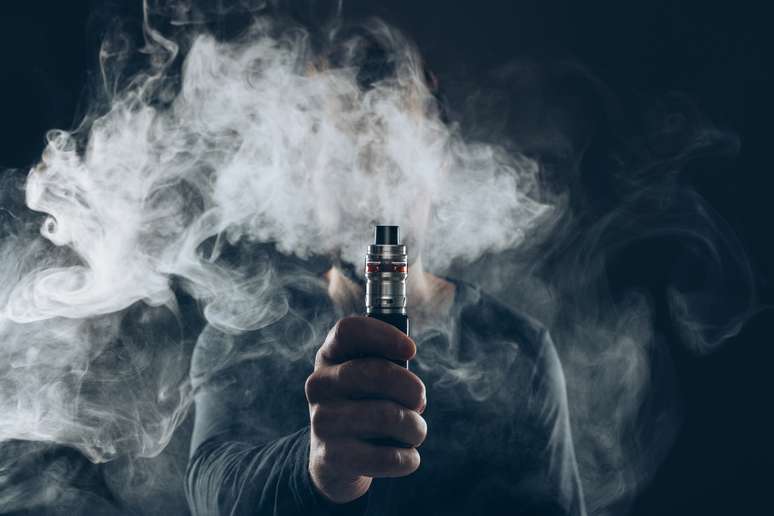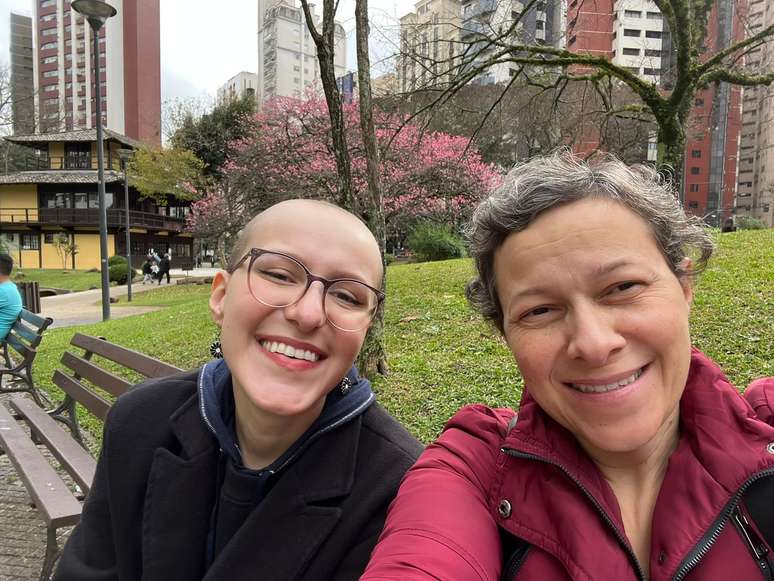Production and marketing have been banned in the country since 2009
The collegial council of the National Health Surveillance Agency (Anvisa) discusses this Friday (19th) the regulation of electronic cigarettes in Brazil. The meeting was scheduled for last Wednesday (17), but was postponed due to technical and operational problems identified on the agency’s official broadcast channel on YouTube.
Since 2009, an agency resolution has banned the production, sale, import and advertising of electronic smoking devices, popularly known as vaporizers. Last year the collegiate council unanimously approved a technical report which highlighted the need to maintain the ban on the devices and the adoption of additional measures to curb irregular trade, such as inspection actions and educational campaigns.

Cigarettes, vaporizers and other smokes: which is the most harmful?
Understand
Electronic smoking devices are also known as e-cigarettes, vapes, pods, electronic cigarettes, e-ciggy, e-pipe, e-cigar and heat not burn. Although their sale is prohibited in Brazil, they can be found in various commercial establishments and consumption, especially among young people, is increasing.
Since 2003, the year in which they were created, the equipment has undergone several changes: disposable or single-use products; refillable products with liquid refills (which mainly contain propylene glycol, glycerin, nicotine and flavors), in an open or closed system; heated tobacco products, equipped with an electronic device to which a tobacco refill is connected; pod system, which contains nicotine salts and other substances diluted in liquids and resembles, among other things, pen drives.
Public consultation
Anvisa opened in December Request public so that interested parties could participate in the debate on the situation of electronic smoking devices in Brazil, “with scientific arguments and relevant reports related to the topic”. The proposed resolution being discussed by the agency was to maintain the existing ban. A Request it closed in February. Shortly before the deadline Anvisa had received 7,677 contributions on the topic.
Harmful to health
With a pleasant aroma and taste, e-cigarettes arrived on the market with the promise of being less aggressive than regular cigarettes. However, the Brazilian Medical Association (AMB) warns that the absolute majority of vaporizers contain nicotine, a psychoactive drug responsible for addiction and which, if inhaled, reaches the brain between seven and 19 seconds, releasing chemicals that cause an immediate feeling of pleasure.
According to the body, in electronic cigarettes, nicotine is presented in liquid form, with strong additive power, together with solvents (propylene glycol or glycerol), water, flavorings (about 16 thousand types), aromas and substances intended to produce a more vapor soft, to facilitate inhalation and absorption by the respiratory tract. “Hundreds of substances have been identified in aerosols, many of which are toxic and carcinogenic.”
Again according to the AMB, the use of electronic cigarettes is associated as an independent factor with asthma, in addition to the increase in arterial stiffness in healthy volunteers, with a risk of acute myocardial infarction, in the same way as traditional cigarettes. Laboratory studies have shown that e-cigarettes are carcinogenic to the lungs and bladder.
Outbreak of lung disease
Between August 2019 and February 2020, an epidemic of lung disease was recorded among e-cigarette users. Nearly 3,000 cases and 68 confirmed deaths have been reported in the United States alone.
National Congress
In addition to the debate within Anvisa, the bill (PL) 5008/2023, drafted by Senator Soraya Thronicke, which allows the production, import, export and consumption of electronic cigarettes in Brazil.
young
According to the National School Health Survey (PeNSE), conducted by the Brazilian Institute of Geography and Statistics (IBGE) in 2019, 22.6% of students aged 13 to 17 in the country said they had tried cigarettes at least once in life, while 26.9% have tried hookah and 16.8% have tried electronic cigarettes.
The study interviewed adolescents aged 13 to 17 who attended the 7th grade of elementary school through the 3rd grade of high school in public and private schools.
Tobacco control
Brazil is internationally recognized for its tobacco control policy. In July 2019, it became the second country to fully implement all measures set out by the World Health Organization (WHO) with the aim of reducing tobacco consumption and protecting people from chronic non-communicable diseases (NCDs).
Edition: Graça Adjuto
Source: Terra
Ben Stock is a lifestyle journalist and author at Gossipify. He writes about topics such as health, wellness, travel, food and home decor. He provides practical advice and inspiration to improve well-being, keeps readers up to date with latest lifestyle news and trends, known for his engaging writing style, in-depth analysis and unique perspectives.





![It All Begins Here: What’s in store for Monday 20 October 2025 Episode 1288 [SPOILERS] It All Begins Here: What’s in store for Monday 20 October 2025 Episode 1288 [SPOILERS]](https://fr.web.img4.acsta.net/img/61/5b/615b86ae565677594436e6cf1c0294ba.jpg)



